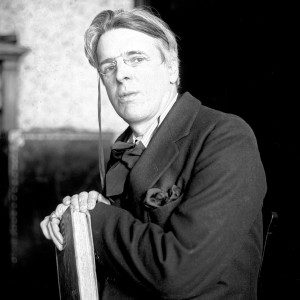But you, beloved, are not in darkness, for that day to surprise you like a thief; for you are all children of light and children of the day; we are not of the night or of darkness. So then let us not fall asleep as others do, but let us keep awake and be sober… (1 Thessalonians 5:4-6)
New Testament scholars often argue that Paul wrote to the Thessalonians because they expected Jesus to return soon, and they were distracted by it. The idea, so it goes, is that this expectation that Jesus was coming back soon robbed people of the ability navigate the daily challenges of life. The timing of Jesus’s return became an obsession, and everyone spent their time trying to guess when he would come back.
We have no first-hand window into what the church in Thessalonica was thinking. But this certainly is a plausible explanation for what Paul had to say. And subsequent Christian -ish communities have also had that struggle.
The Shakers, for example – also known as “The United Society of Believers in Christ’s Second Appearing” – was thoroughly shaped by this expectation. Mother Ann Lee one their early preachers urged their followers to “take up a full cross against the doleful works of the flesh” – including making babies. So, it’s somewhat amazing that there are still two Shakers left in the United States. But – as you might imagine – they are not directly related to any of the original members.
The older I get, however, the more I’ve concluded that the church in Thessalonica might have also been motivated by the same struggle that we all have. Life can sometimes be so hard, so complicated, that we just wish that Jesus would cut to the chase, come crashing down our of heaven, and sort it all out.
The reason I say this is because down through history, people have repeatedly predicted the end of the world, and it’s not just Christians who do this. Atheists do it as well. Nuclear holocaust, life-ending asteroids, climate change, aliens from another planet, artificial intelligence – but, strangely, never natural ignorance — you name it, there are countless problems that provide the pretext for talking about world-ending cataclysm; and when the problems seem to be inescapable or intractable, we inevitably look for an easy way out. Even if that way out involves ending life as we know it.
In fact, I suspect that deep down inside where we would rather not admit it, there is something emotionally appealing about having the whole enterprise end with us, rather than carrying on, long after we are gone. World-weariness can take some pretty strange turns, some of them extraordinarily dark – including that version of world-weariness that stalks minds of those who just want to burn down the world and everyone in it. Terrorists and mass killers come to mind.
What is remarkable about Christianity, however, is that even though the early church expected Jesus to return, it did not surrender to world weariness and begin searching the horizon for signs that Jesus was about to return. The Gospels, Paul, and Saint John in the Apocalypse – the entire New Testament for that matter – insist that we don’t know, and we are not going to know. Instead, they insist that Christians love God, love their neighbors, practice mercy, and baptize others into the life of God in Jesus Christ.
Paul doesn’t come straight out and explain why this is the approach that he and the early church takes. Instead, he urges the Thessalonians live like children of the light. But his reasoning is implicit in what he has to say.
For one thing, as Paul notes, the children of the light know the “times and seasons.”
Today, we might say, they know the score. They are aware of the nature of the times in which they live.
For all the talk we might hear about the end of the world, the children of the light know that the end is already here. It’s not the end, as in asteroids and melting ice caps. It’s the end as in, “Now we know the true nature of things.” There is a God and you are not. And God is here in the person of his Son to announce the beginning of his reign over the hearts of everyone who will hear him and believe.
This is the witness of all four gospels: In Jesus, the Kingdom of God is already here. Salvation is now. Judgment is now. We have been offered his life as the model for our own lives and that is enough.
This logic is also at work in the church’s celebration of the Eucharist: “Christ has died. Christ is risen. Christ will come again.” We don’t celebrate something that belongs exclusively to the past. We aren’t talking about something that belongs exclusively to the future. The work of Jesus on our behalf is also done for us over and over again. This conviction and the liturgical practices associated with is the fixed point, at the Christian life, and it is important to remember that.
If you are like me, I often wonder where the hell we are headed these days. (Yes, I know, I shouldn’t have said that, but I know you are thinking the same thing..) We are approaching a Presidential election in which the candidates will be two old men, who – for different reasons – shouldn’t be running for that office. We have a national legislature that can’t agree on the time of day. Americans are at war with one another over the most basic of assumptions about who we are as a country. There is a war, again, in Europe. There is the threat of war in the Far East, and there is a hot war in the Middle East.
Frankly, I wonder whether we will look back on this decade and realize that this was the beginning of World War III. I am not sure we are ready for it. And I am all but certain we won’t have time to get ready for it, if that day comes. Technology has erased the safety provided by good neighbors and two oceans.
But here’s the thing: As a child of God, I am convinced that nothing can happen – in global or personal terms – that is more decisive, than what happened over two thousand years ago in the life, death, and resurrection of Jesus Christ.
I think that another reason Paul doesn’t give into world weariness is because God doesn’t give into it.
As he tells the Thessalonians, “God has destined us not for wrath but for obtaining salvation through our Lord Jesus Christ.” It’s possible to read that as a word of reassurance addressed to the Thessalonians and to Christians in general. But I think it also describes the posture of God toward the whole of the human race.
People who are world weary typically surrender to zero-sum theology that implies, “I can’t go to heaven, unless you go to hell.” And, more often than not, they envision a future salvation that is otherworldly in almost every sense of the world.
As a result, books like the ones written by Tim LaHaye 20 years ago in the Left Behind novels have more in common with disaster movies than with the New Testament. The heroes find a way to launch into space, leaving a dying earth behind them, and they establish a whole new way of life on Mars. The only difference is that in LaHaye’s novels Christians are taken up into heaven and leave the earth that God made behind them.
That’s not the way that the Bible reads. God is not world weary. And he has not given up on us or his creation. In the person of his Son, he draws close to us, and through baptism, he draws us close to him. And the future that the New Testament describes is one of not just a renewed humanity, but a renewed heaven and earth as well.
But here, too, is another reason that Paul does not spend time with a crystal ball: The transformation that God longs to work out in and through us is not done, all at once, on the other side of the grave or the end of history. It is begun in this world, in these bodies, and in the lives that God has given us, and that journey begins now.
This doesn’t mean that the children of light are naïve. It doesn’t mean that they think that people are basically good, that sin is just a matter of bad choices, that we can be saved by a new world order and human effort.
Part of being a child of the light is the knowledge that there is darkness. To say that the world needs to be saved, rescued, and healed – means that it is lost, trapped, and broken. Jesus knew this. His death on the cross embodied it. His Resurrection is God’s promise that the power of death is broken.
This is why the children of light are baptized into the body of Christ and then take the body and blood of Christ into themselves, over and over again. We live out our lives in the chaos, loss, and pain that the world experiences. But we also offer this message of hope: God is not weary of us, but loves us, and longs to rescue us.
Photo by Davide Cantelli on Unsplash














